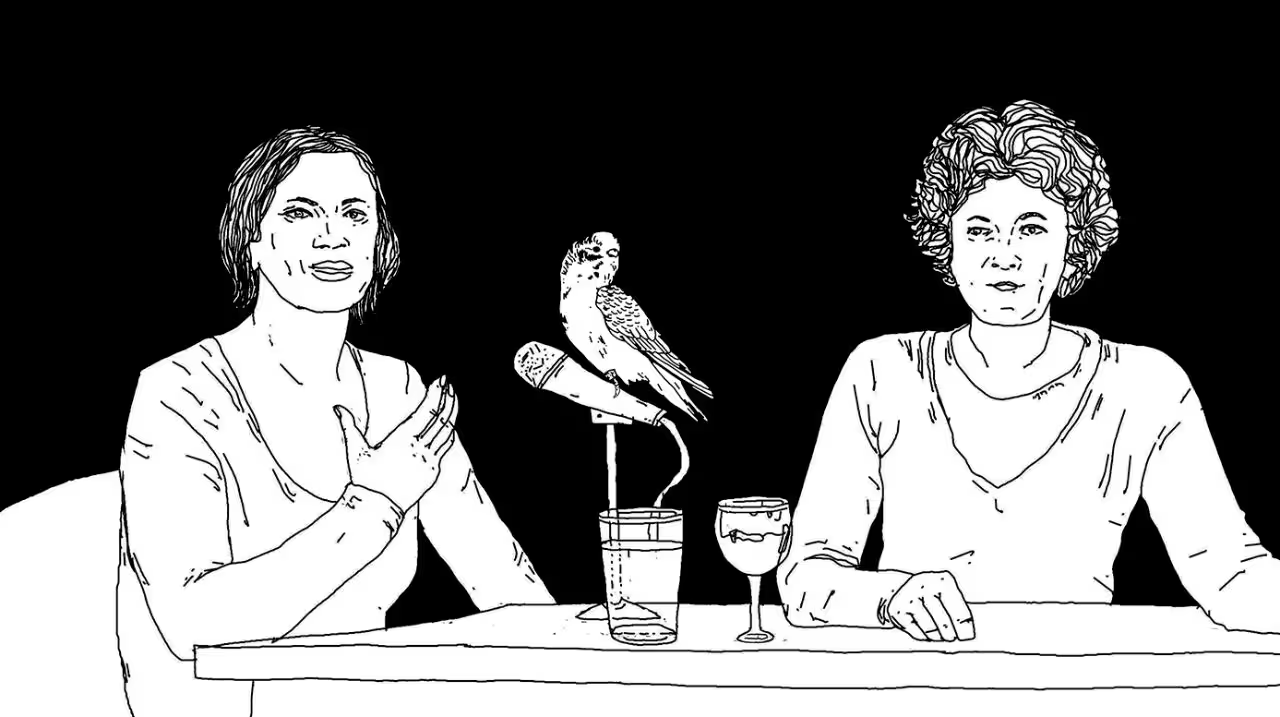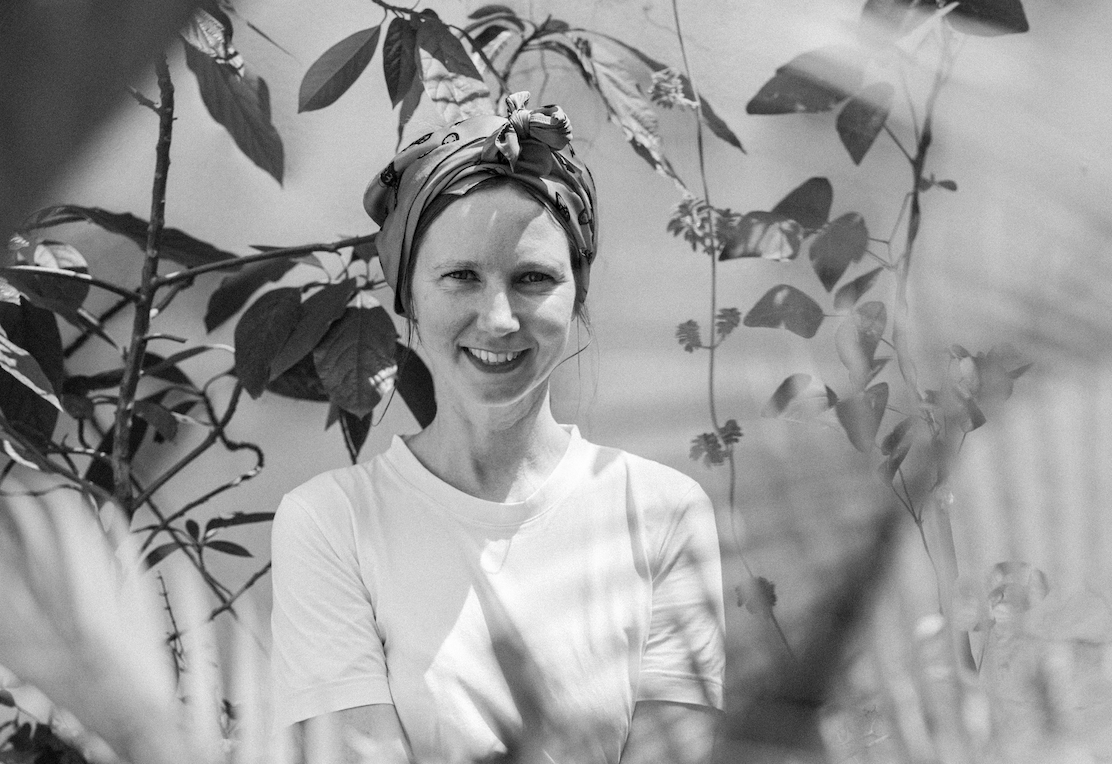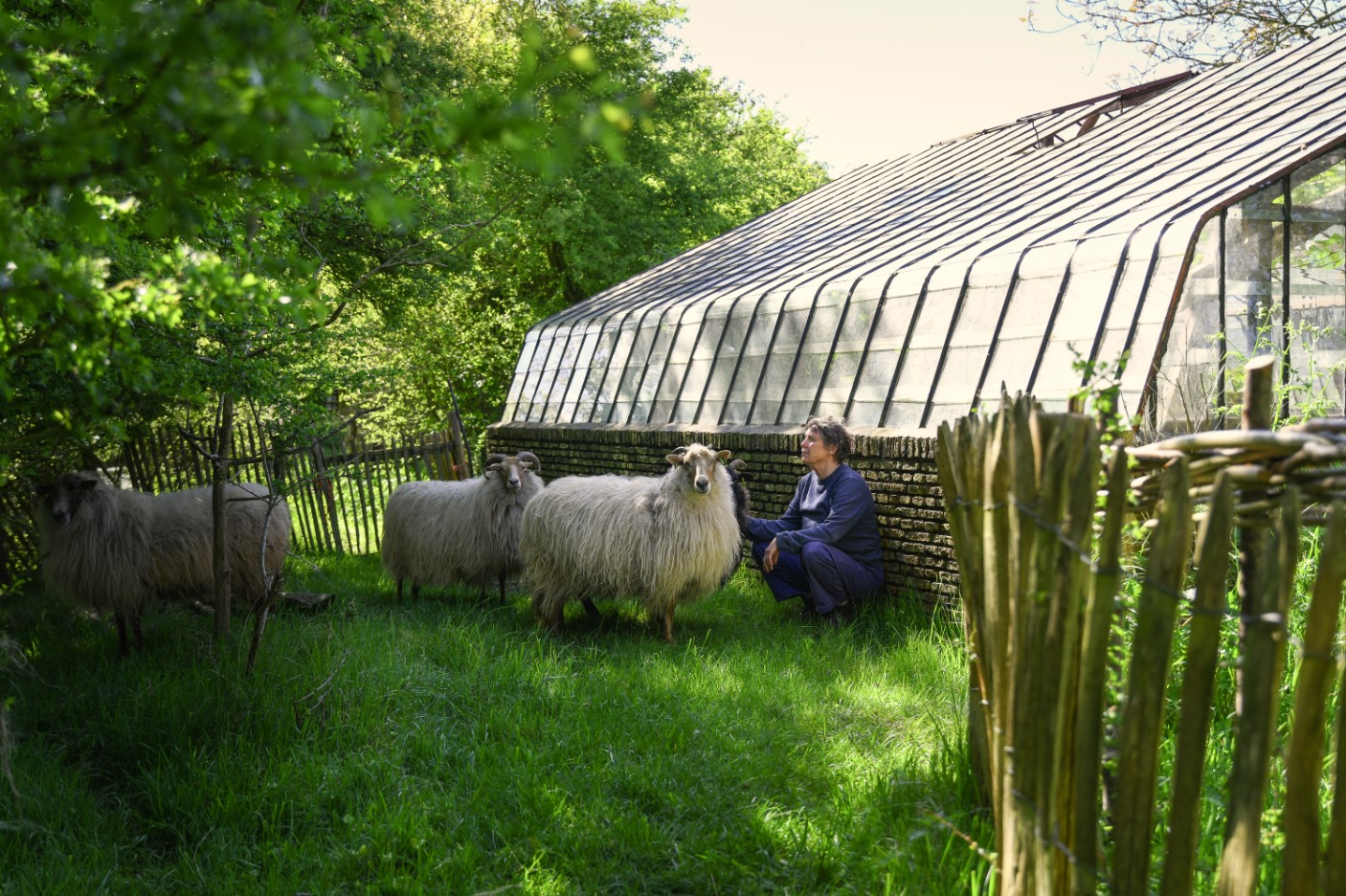► českou verzi článku najdete zde
Why should we talk to animals?
Hannah: That’s not the right question. The question is: Why do we talk to animals, what’s it about and why is it so interesting. Why do we like to do it? And why do we think that there is a language between us? It’s more about exploring the already existing situation. Because we do talk to each other all the time – though everyone in their own specific way.
What would be the answer?
Hannah: There are always good reasons to talk about animals because we’ve been living in a very close relationship for four thousands years. It’s a relationship of love, death, of eating each other, of working together, of pain and torture. So the answer may be that we do it because we live in a relationship and we use each other. We, humans, have a special responsibility in this because for specific reasons we are able to dominate them to such an extent that we can make some species extinct. It’s very easy to destroy animals. So there is also the need to improve the ways of communication. And it’s a hard task.
So how should we treat animals better? Is it about eating meat or is it more general?
Karin: There are many different ways. In my opinion, to make the decision that we won’t eat meat anymore is good. But I think there is also something else which may challenge the way we see the world. It is the moment when you begin to acknowledge that you have a relationship with someone who obviously doesn’t speak your own language; the untranslatable moment between you and this other creature pops up every now and then. I think there is a lot to explore actually. Not only do you have to invent how to talk – What kind of language could it be? – but you also have to acknowledge that the language is not the most important thing. There are other ways of communication. I think the best way is to get close to the animals and observe them silently, let the time tick by and try to figure out who or what is the creature in front of me and who am I myself. I think that’s the best way. A play is also a good way of communication between humans and animals.
What is good about it?
Hannah: A play is especially good as a kind of improvement of originally only a purposeful relationship with many animals. For example with the domesticated ones and also the ones we use – be it more or less. The definition of a play is that it doesn’t really have to come to an end. So it should not be purposeful per se. If you don’t focus on some specific goal, it is a very interesting way to discover your own capabilities. Ok, let’s play! Let’s see what happens.

Hannah Hurtzig and a horse in Pilsen creative zone DEPO2015. The outcomes of the project are on display at Prague's Goethe Institute since January 6th, 2016 .
If people start talking to farm animals or fur animals, wouldn’t they just stop eating or using them then?
Karin: People who live with animals, who breed them, usually don’t have difficulties eating them. They often have rituals. They know them and they know how to approach them. It might happen that before farmers eat a rabbit they have been breeding, they’d say to him: ‚Hey, you had a good life, I’m sorry, but this has to be done.’ I think that radical vegetarianism very often originates in feelings of guilt. And the guilt has roots in the fact that people don’t know what is happening to the poor animals in the slaughterhouses. They don’t have the experience.
People’s motivations leading to a restriction of meat consumption may differ. So getting to know the animal world better might not necessarily be a guaranteed and the only way towards vegetarianism…
Hannah: Apparently not. What I like about the discourse of working with animals is that there is always a very radical position of some of the activists who say that everything has to be stopped. I think it’s good if your ideals of an activist or politicians are clear-cut. But of course there are other possibilities that could be discussed, for example in case of farming or science. You might work together with the farmers and help them create more animal friendly technology for the breed. Or when it’s really necessary to make experiments on animals, for example in neuroscience research, after they’re done with their honourable job, it is possible to really be nice to them. But how far can you go not to become just another activist minority and how to infiltrate the system to improve the conditions? You always have to think about both sides and that’s interesting.
Sometimes I feel that it’s kind of a betrayal of animals when they are kept „with affection,“ as friends, and then suddenly killed. Isn’t it better to just not have a relationship with them?
Hannah: Yeah, but you know, we approach this in context of different cultures. For example of those Brazilian tribes, who still practice cannibalism. From our point of view, a human who we would eat would likely be our enemy. These people would invite a stranger into their tribe, they’d let him stay, get married, even have children. Nevertheless, sooner or later they are going to eat him. There is another way of looking at these things, which is not based only on guilt but on the idea that the world, the nature and the culture are all part of the same cycle.
It seems like this connection to nature is in some ways grievously missing in our culture.
Karin: In modernity, we used to think about nature as something totally disconnected from us. We thought we had culture so we should have our morals and ethics. Then there’s nature, which simply does what it does: kills, for example. In other cultures, they didn’t and do not separate these things. They are sort of mimicking, simulating the processes that can also be seen in nature. So killing and eating is an inherent part of it. If we separate everything that has anything to do with animals from culture, we make industrial meat production possible. Because if you think of yourself as part of the cycle of life and you connect the way you treat animals with rituals, memories or community, you would not isolate one million hens just for food production. So that’s why I have a tendency to say we should rather live with animals, have a relationship with them, kill them and eat them in the moment we think is right. Then you know what you are doing and you don’t have to tackle that abstract issue of guilt.

Many animal species would actually kill us if they could. Why should we be better than them? Is that what makes us more human, not animal creatures?
Hannah: But we don’t taste as good.
Karin: It’s a more complex problem, as there are not so many species that are interested in eating humans. Also animals usually don’t kill for fun. The fact that we may resemble animals doesn’t make us better or worse. We are different in a way that we are not specialized. This is why humans are so adaptable, spread everywhere and capable of killing and eating whatever they like. For animals, this isn’t the case. They are usually very restricted to certain environment, to certain nutrition, so they actually don’t pose as much danger to us as we do to them. We are dangerous for them. Totally.
Can we do without furs, leather and feathers?
Karin: Of course we can do without a lot of things. As I’ve already said, we are extremely adaptable; to a very cold environment, to deserts, to amazon rainforests. We are not restricted to certain behaviour or certain nutrition. Animals are in one way or another specialized and they have a hard time adapting. So we should rather ask why should we continue to use leather and fur. What would such a decision bring and what would we lose? What would we lose if we didn’t eat animals at all? The answers would be quite different depending for example on the origin or culture. Me personally, I can live without leather but for the cultures of south Bolivia, fur might be a very important part of the life cycle. So I would never generalize in case of such questions because it really depends on where you live and how you actually produce leather and fur.
Do animals belong to cities? To a public space? I’m asking because a lot of people in the Czech Republic want to push animals out of these places.
Hannah: You also have closed borders and you don’t want to let refugees in. So you have problems on many levels. Nevertheless, of course, animals belong to cities, they have for a long time, for centuries. And of course a lot of animals have migrated into cities because they can live safer there compared to countryside where they may be shot. So they are refugees and they are welcomed. Let’s have more of them in here! Let’s change the means of transport, the traffic. Maybe we should think in a different way. Maybe we should wake up very early in the morning and listen to the birds singing and then have another nap before we go to work. There is so much stuff to discover and to make life more fun with animals around.

Do you think that culture or art can help change the attitude towards animals?
Karin: I would say so. What art can do is that it can affect you. It can show you an animal in a way that really makes you reprogram your relationship with other beings. For example I saw a big tortoise today. It was incredible because I think I’ve never seen one this big and I was totally fascinated and started speculating: How would this creature perceive time? So the confrontation with aesthetic experience, in the best case scenario, forces you to change your perspective. It’s not something that happens every time you look at art in a gallery. But sometimes, in 1% of all cases, there might be something that changes the way you perceive things.
Could a simple look into the animal’s eyes help? Though actually, that might be the hardest thing for some people. Perhaps because of the fear of the necessity to change their lifestyle, maybe because of the guilt? Do you think that this kind of fear exists?
Karin: Yes, I think that this kind of fear exists. And yes, I think that this can change a lot.
How can one fight this fear?
Karin: We can ask people to do it, we can set up a place where such an encounter is possible. But we will never be able to force anyone to look into anyone’s eyes. Many people don’t look into each other’s eyes. A seductive set up offers you the possibility to confront yourself with a strange being, possibly without fear. That’s the function of art, of course. It will probably not work for everybody but it can happen.




